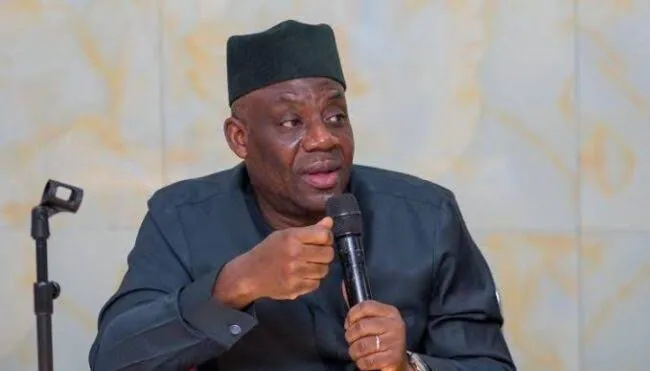As Nigeria at 65 is marked with speeches, parades, and reflections on national progress, the country’s education system tells a sobering story. Far from being a source of pride, it has become one of Nigeria’s most pressing crises. Experts, educators, and parents alike point to chronic underfunding, decaying infrastructure, and growing inequality as evidence of a sector in dire need of rescue.
Table of Contents

Nigeria at 65: A Nation Celebrates, But Education Lags
While anniversaries often inspire optimism, Nigeria at 65 highlights a paradox: a country rich in human potential yet failing to equip its youth with the tools for the future. Stakeholders argue that education has never been treated as a true national priority, despite repeated government promises. The result is a system burdened by overcrowded classrooms, insufficient teachers, and outdated curricula.
The implications go far beyond schools. Without strong investment in human capital, Nigeria risks undermining its development goals, weakening its democracy, and limiting opportunities for its citizens.
The Budgetary Shortfall
One of the clearest indicators of neglect is funding. UNESCO recommends that countries devote 15–20 per cent of their budgets to education, with a target of 26 per cent for developing nations. Nigeria consistently allocates less than 10 per cent, leaving gaping holes in teacher salaries, infrastructure, and learning resources.
Analysts estimate that paying every registered teacher at the current minimum wage of ₦70,000 monthly would require nearly ₦2 trillion annually. Yet the education budget falls short by almost half this amount. The deficit leaves schools struggling with inadequate facilities, while many teachers are demoralised by poor pay and irregular wages.
At Nigeria at 65, this persistent underfunding represents not just a missed target but a betrayal of the younger generation’s right to quality education.
Crumbling Schools, Overwhelmed Teachers
Across the country, classrooms with leaking roofs, broken furniture, and no electricity have become symbols of state neglect. In some communities, children still learn under trees or in unsafe, makeshift structures. Laboratories, libraries, and ICT centres—where they exist—are often obsolete.
Teachers, too, face crushing challenges. Low pay, little professional training, and oversized classrooms have driven many from the profession or into private schools. Those who remain often struggle with morale, leading to a cycle of poor teaching and low student performance. Strikes in universities and polytechnics, fueled by disputes over salaries and infrastructure, have become routine.
As experts emphasise, the education crisis at Nigeria at 65 is not only about money but also about political will and vision.

Millions Left Behind
Perhaps the most painful reality is the rising number of out-of-school children. Nigeria now has about 20 million children not attending school, the highest figure in the world. Girls in rural and northern states are disproportionately affected due to poverty, cultural norms, and insecurity. For many families, the cost of uniforms, books, or transport is simply unaffordable.
The consequences are severe: young people left without literacy, skills, or opportunities are more vulnerable to unemployment, early marriage, crime, and extremism. At Nigeria at 65, the widening education gap underscores deep social and regional inequalities.
International Aid and Domestic Gaps
Global institutions have stepped in to support Nigeria. Earlier this year, the World Bank approved a $1.08 billion loan to strengthen the sector. NGOs, donor agencies, and community groups also run programs to boost literacy, teacher training, and girl-child education. But experts warn that aid cannot substitute for consistent domestic funding and accountability.
Too often, government pledges do not translate into action. Even when funds are released, corruption, weak monitoring, and bureaucratic bottlenecks prevent them from reaching schools where they are most needed. Critics argue that unless Nigeria reforms its governance structures, additional funding will not deliver the desired transformation.
Beyond Nigeria at 65: The Road Ahead
Despite the grim picture, solutions exist. Education reformers highlight several urgent steps:
- Increase funding: Moving closer to UNESCO’s 26 per cent benchmark is essential.
- Rebuild infrastructure: Schools need safe classrooms, water, sanitation, and digital facilities.
- Support teachers: Regular pay, professional training, and incentives can restore dignity to the profession.
- Prioritise equity: Girls, rural children, and marginalised groups must be targeted with scholarships, safe school programs, and tailored interventions.
- Modernise curricula: Digital literacy, STEM, and problem-solving skills should replace rote memorisation.
These measures require political will and long-term planning. More importantly, they demand recognition that education is not a luxury but the foundation of national progress.

A National Turning Point
Marking Nigeria at 65, the education sector’s struggles serve as a mirror of broader governance challenges. Independence brought the promise of self-determination, but without educated citizens, development will remain stunted.
Experts warn that the cost of inaction is too great: a generation trapped in cycles of poverty, a workforce unprepared for global competition, and a democracy weakened by ignorance and inequality.
The anniversary, therefore, is not just a time for celebration but a call to action. If Nigeria hopes to harness its vast human potential, education must finally move from the periphery of budgets and politics to the centre of national life.
In Nigeria at 65, the lesson is clear: without urgent investment in schools, teachers, and children, the country’s future risks slipping away.
Join Our Social Media Channels:
WhatsApp: NaijaEyes
Facebook: NaijaEyes
Twitter: NaijaEyes
Instagram: NaijaEyes
TikTok: NaijaEyes
READ THE LATEST EDUCATION NEWS













![Heartwarming Moment: Priscilla Ojo and Son Rakeem Reunite with Juma Jux in Tanzania [VIDEO] Priscilla Ojo](https://naijaeyesblog.com/wp-content/uploads/2025/09/Reunited-Priscilla-Ojo-says-as-she-celebrates-son-Rakeem-one-month-Kemi-Filani-blog-min-768x512-1-1-180x135.avif)

























